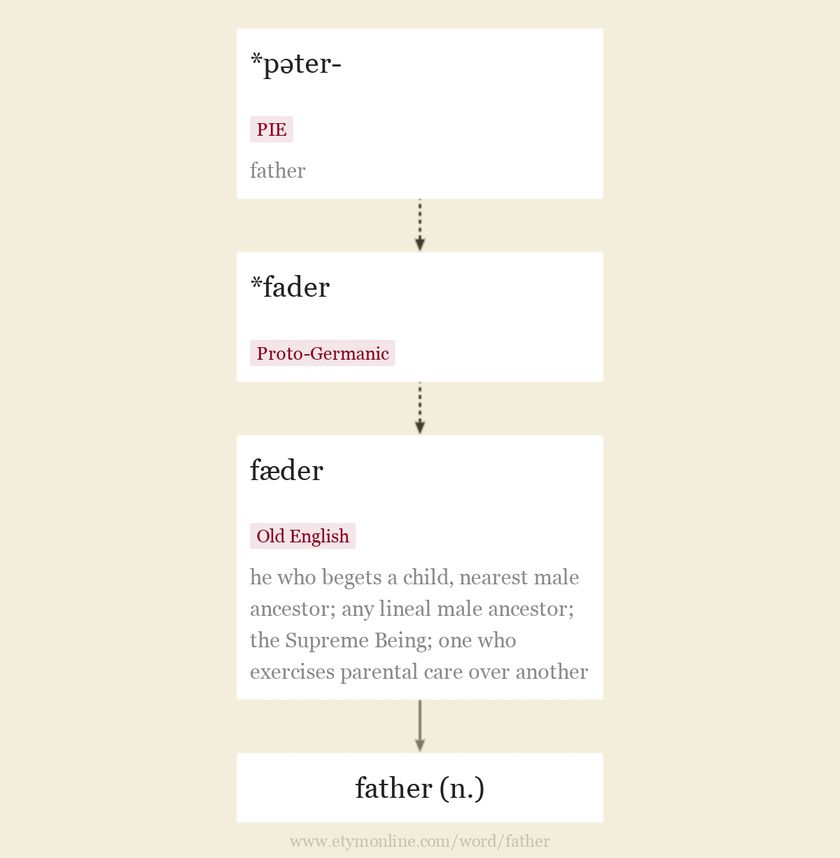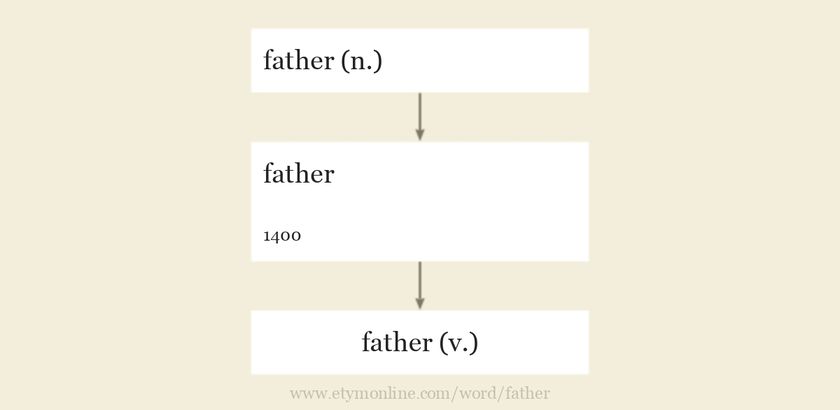father (n.)
Middle English fader, from Old English fæder "he who begets a child, nearest male ancestor;" also "any lineal male ancestor; the Supreme Being," and by late Old English, "one who exercises parental care over another," from Proto-Germanic *fader (source also of Old Saxon fadar, Old Frisian feder, Dutch vader, Old Norse faðir, Old High German fatar, German vater; in Gothic usually expressed by atta).
This is from the PIE root *pəter- "father" (source also of Sanskrit pitar-, Greek pater, Latin pater, Old Persian pita, Old Irish athir "father"), which is presumably from baby-speak sound "pa." The ending formerly was regarded as an agent-noun affix. The classic example of Grimm's Law, where PIE "p-" becomes Germanic "f-."
The spelling with -th- (15c.) reflects a widespread phonetic shift in Middle English that turned -der to -ther in many words, perhaps reinforced in this case by Old Norse forms; the spelling caught up to pronunciation in 1500s (compare mother (n.), weather (n.), hither, gather).
As a title of various Church dignitaries from c. 1300; the meaning "creator, inventor, author" is from mid-14c.; that of "anything that gives rise to something else" is from late 14c. As a respectful title for an older man, recorded from 1550s. Father-figure is from 1954. Fathers "leading men, elders" is from 1580s.
My heart leaps up when I behold
A rainbow in the sky:
So was it when my life began;
So is it now I am a man;
So be it when I shall grow old,
Or let me die!
The Child is father of the Man;
I could wish my days to be
Bound each to each by natural piety.
[Wordsworth, 1802]

Trends of father
updated on June 17, 2023
Trending words
Dictionary entries near father
fatally
fat-back
fate
fated
fateful
father
Father's Day
fatherhood
father-in-law
fatherland
fatherless

